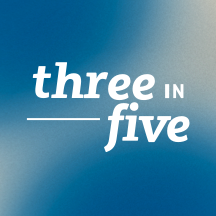Steve Peacher: Hi everybody this is Steve Peacher President of SLC Management thanks for dialing in. Today I’m with Amy DeAngelo, who is a senior managing director and head of human resources at SLC with me. Amy thanks for taking a moment this evening.
Amy DeAngelo: Thank you.
Steve Peacher: I want to talk about the topic that everybody's talking about, you and I talked about it all the time, which is returned to the office. Every day, if you read the paper you read about how different firms were approaching it, we're talking about how we're approaching it so, can you speak to that at SLC Management, what are we thinking about when we think about getting our employees back into our various offices?
Amy DeAngelo: Obviously current very current topic here. You know we've been welcoming people back on a voluntary basis, so like a lot of firms we hoped for a broader return in the fall, but concerns on the Delta variant we thought it was safest for a 2022 return. But a lot of people are coming in voluntarily, feeling good about being in the office collaborating and seeing each other, so that's great. From a health and safety standpoint, we are requiring vaccines in North America, so everyone who is choosing to come back in that's a requirement and people feel good about that too. Our future of work model, so in 2022 we're returning to a flexible model with three common days to be in the office. We truly believe this will drive the informal interaction people are missing, and the collaboration that really builds and sustains culture. This model we're excited about, we think it balances the needs of our clients our business our teams and our people effectively.
Steve Peacher: So return to the office bleeds into the topic of future work, but I think they're two different things. So, when you think about the future of work in asset management and the their trends out there in terms of where people will end up once we're fully back. What are those trends and how have they guided are viewed SLC of our future of work?
Amy DeAngelo: We have definitely been connected with our peers and asset management, we go to a lot of forums around a lot of CHRO forums and business forums, the hybrid working model is definitely the most common. So, the SLC flexible model, we're right there in line with what others are doing, in fact, the last HR forum I went to 85% of the groups said that two to three days in the week is the future of work and asset management. The discussion was ‘it's no longer whether to be hybrid but how to be successfully hybrid.” And so what that means is creating a culture that's inclusive and equitable no matter where you are. And at SLC one of the things that's really important to that to that principle is investing in technology to create a more equitable experience. So aiming for Zoom rooms that have virtual touch boards, training resources so people can understand the technology that's available to them and then just asking people for input, you know turning on our listening channels as we move into the flexible model. And then the last one Steve was really interesting, I went to a recent HR forum and at the asset management table we're talking about the need for enhanced learning and growth after we come out of this pandemic. The CFA Institute did a recent study and about 91% of the people surveyed said they're looking to build a new skill in 2022, which was a huge number compared with only 46% of those things people said the company is giving them the support currently, so I think we're going to see a big focus on learning and development coming out of this pandemic, which makes a lot of sense.
Steve Peacher: You know I think this pandemic and the strain of working from home or living at work as some people have said, has really raised to the for this notion of mental health.
Amy DeAngelo: Yeah.
Steve Peacher: I know you spoken recently at an Institutional Investors conference on how can empathy and authenticity and commitment to well being be one of the most powerful tools that we have as an employer with our with our employees. If you think about the experience over the past year and a half what's worked for us and what advice would you have for others and other organizations?
Amy DeAngelo: Yeah, mental health, wellness has been and it will continue to be a big focus for us. People all over the all over the world are reporting more burnout than ever before, and as you said the blurred lines between work and home are contributing to that. In fact the World Health Organization has recently recognized burnout as an occupational health issue, so that's a big that's a big signal for us. At SLC we focused on two things: first, the role of the leader having really good one-on-one conversations, so they can understand the needs of their people and how to support people in the way they need to be supported. So we invested in leader training on that. The second one is just creating a culture of psychological safety, we're talking about mental wellness in the workplace is OK to do, making sure people feel they can speak up ask for what they need. The workplace is a powerful platform to reduce the stigma of talking about mental health. So we've really tried to create that culture of psychological safety. And then lastly Steve, as you know, one of the biggest hits of our new protocols to help in the pandemic is our no meeting half day Fridays, which we've been enjoying for over a year here at SLC and while it doesn't work perfectly, it gives people the permission to say no to meetings on a Friday to catch up on their work, to reduce the screen time and the meeting time. We've also you know encouraged no meeting zone lunchtimes and walking meetings and shorter meetings and just good etiquette of reduce the meetings and limit the number of the hours that people are in front of screens.
Steve Peacher: Well the half day Friday’s have certainly been popular, and I actually think it's also lead to better efficiency because you can get some things done and it frees up your weekend, which is important. One more personal question, I know that your son is a very active junior hockey player, which means you spend a lot of time in hockey rinks, which I now think you're allowed back into. So when you pack your bag to prepare for two hours in a cold hockey rink what's in that bag to help you get through it?
Amy DeAngelo: Oh what's in my bag? Gloves. A hat. And just you know I used to show up with my phones and do the multitasking, but I’ve become so into the game that I’m just on the edge of my seat, so I don't really worry about what's in my bag anymore I’m just super excited to watch the games and be there with the other parents and cheer the whole team on, so.
Steve Peacher: thanks for having a blanket to sit on?
Amy DeAngelo: Yeah, I’m hoping maybe for Christmas I’ll get that from my son.
Steve Peacher: Alright well thanks Amy you know this whole return to work topic and future workers on everybody's mind, so we really appreciate your comments and thanks everyone for listening in to this episode of “Three in Five.”
Amy DeAngelo: Thank you.
This podcast is intended for institutional investors. The information in this podcast is not intended to provide specific financial, tax, investment, insurance, legal or accounting advice and should not be relied upon and does not constitute a specific offer to buy and/or sell securities, insurance or investment services. Investors should consult with their professional advisors before acting upon any information contained in this podcast. This podcast may present materials or statements which reflect expectations or forecasts of future events. Such forward-looking statements are speculative in nature and may be subject to risks, uncertainties and assumptions and actual results which could differ significantly from the statements. As such, do not place undue reliance upon such forward-looking statements. All opinions and commentary are subject to change without notice and are provided in good faith without legal responsibility.






